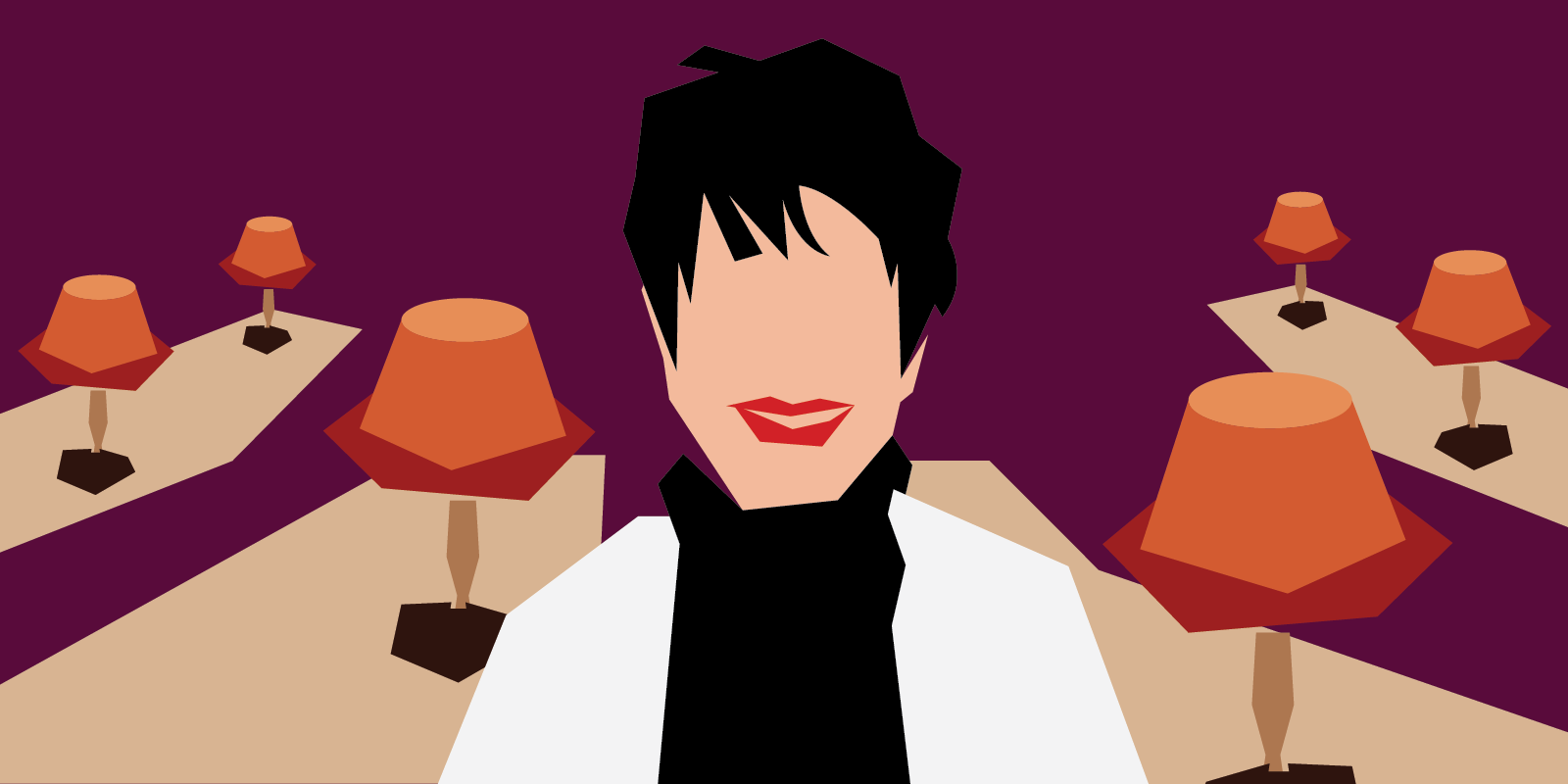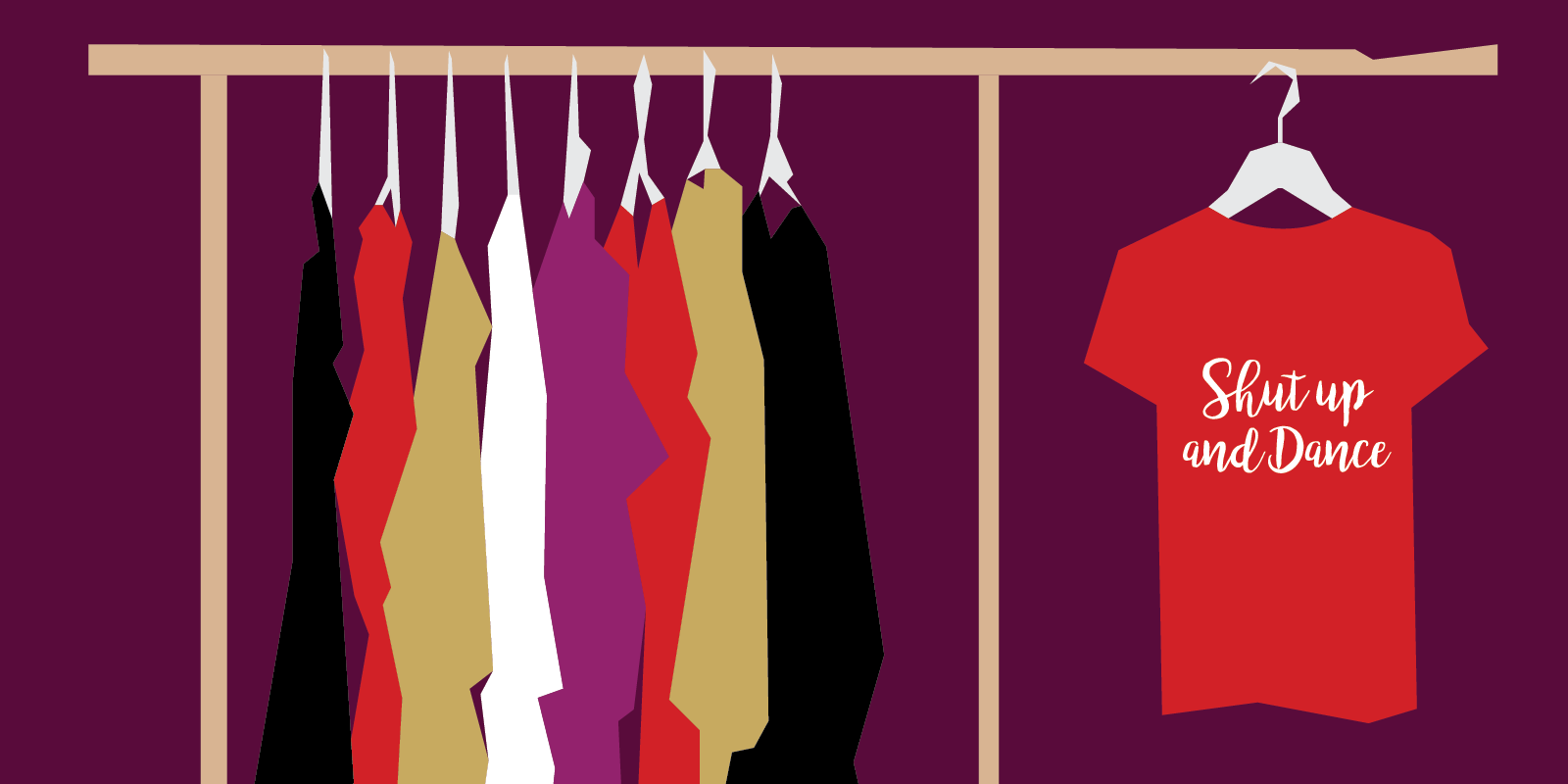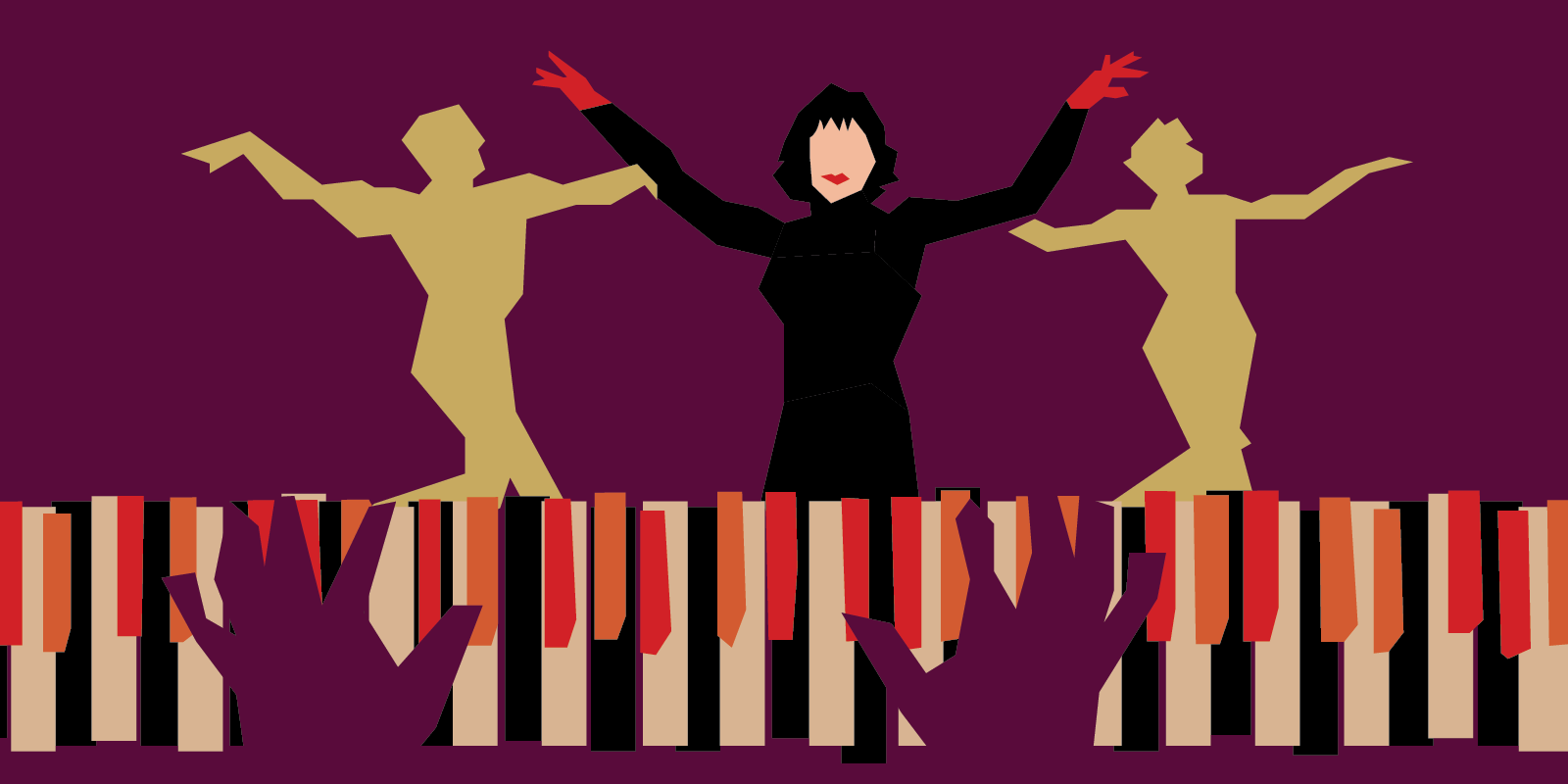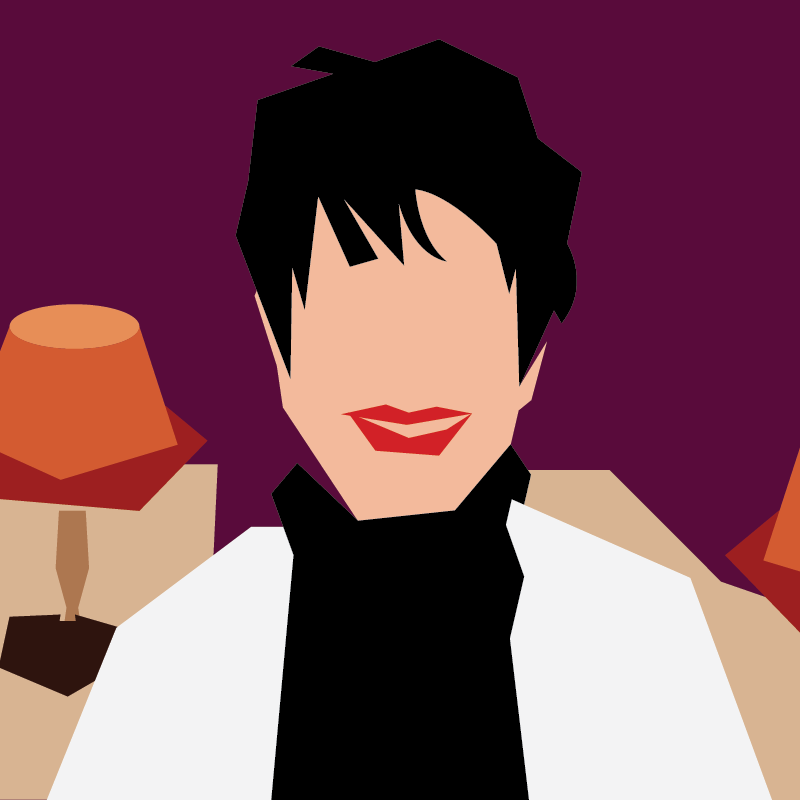20 Minutes with Chita Rivera

Written by Victoria Myers
Illustrations by Desiree Nasim
May 18th, 2016
Chita Rivera is doing an encore engagement of her cabaret show at the Café Carlyle from May 18th to May 21,st which is what led to me being told Chita Rivera would do a twenty minute phone interview. The Interval does not do phone interviews, but I asked myself, “Was I really going to be the idiot to say no to Chita?” as I sat in a taxi stuck in Times Square traffic. No. No, I was not. I would use my phone for something other than taking photos of my cat, and, with God (and the man in the Elmo costume who my taxi driver almost hit) as my witness, I will get over my fear of talking on the phone. But what do you ask two-time Tony winner, Kennedy Center Honoree, Presidential Medal of Freedom winner, and all-around theatre legend Chita Rivera in twenty minutes?
I wanted to start by talking about your show at the Carlyle. I know it’s based around your favorite songs and songs that have meaning for you. I was wondering when performing songs, especially the ones that have had meaning to you throughout your career, how do you balance what the song meant to you at the time and what it means to you now?
I don’t think you have to balance it. I think you just have to be in the song and appreciate it and tell a story in front of it, and then go on to the next. It’s like putting on a show, any kind of show, together. You have to have a theme that goes through it and that theme is you. That theme is how you feel, what the song has to say, possibly when it was done, what show it was from. I don’t compare it to then and now. The scores are so brilliantly created that they last this long. In other words, you don’t have to explain West Side Story. I’ve been lucky enough to do a West Side Story, a Chicago, Sweet Charity, Bye Bye Birdie. People know those. These are not songs that come from nowhere.

I would love it if you talked more about your process for how you interpret material. Do you tend to start with the music first, or the lyrics? What grabs you?
Well, when you start a show, you know your character, and the composer and lyricist give you your music. You don’t pick it; they give you your music, and you do it. You either love it, or you may not like it as much. You may not be doing it as well when you begin it, and then you’re in the creative process, so the people that create the score help you to find the song. It just is a process. It’s not something that you just talk about, you just do it. Have you seen those t-shirts that say “Shut Up and Dance”?
Yes, I have.
Yeah, okay. That’s what it is. It’s “Just do it.” Just simply do it. You find out what it means by doing it.
A thing that’s said a lot about writers is that they always have their issues and themes that they go back to again and again in their work and that they’re trying to explore. Do you feel like you have things and themes that pop up a lot for you in your work?
When you do a song thirty years ago and you do it today, you’re a different person. You approach it possibly in another way, with certainly another understanding or more understanding of the song. Nothing is ever the same from today to tomorrow. It is never the same.
Your career has spanned so many years and included so many famous shows throughout the Golden Age of musical theatre. Is there anything about musical theatre of the past that you wish we still did now?
Well, I wish there were more original pieces as opposed to revivals. That’s not saying that there shouldn’t be revivals because by God, there should be. I don’t think that there are as many brand new American musicals that we’re so famous for. I don’t think as many are being created right now, because I think television has taken over and I think it’s a money thing. They [the producers] go for things that have been done, things that they consider surefire. I just wish there were room for more young writers to not be afraid to practice their craft in the theatre.
What do you consider to be the best change in the theatre industry that you’ve witnessed in your career?
Well, I don’t think you can categorize anything like that, like “the best,” “the worst,” “the most.” Things change, and they change for a reason. They change in degrees and they change—sometimes you think for the worst, but it’s actually for the better. I can’t say, because I’ve had a blessed career. Each one of the shows that I’ve done, even the ones that have not made it, have been a positive experience for me. The theatre changes its face all the time, as everything does. It’s just different nowadays.
New work is something that comes up a lot when I’m talking to writers and directors, and I like getting their thoughts on what they think can be done to help improve the development of new work. I’d be interested to know if you had any thoughts on what the theatre community can do as a whole to help support new writers, new work, and new musicals?
Lower the price. Lower the price of the ticket. Now you know that’s not going to be popular. I think money is the most important thing nowadays. Did you ever see the show 42nd Street?
Yes.
Okay. That was an absolutely beautiful example of what Broadway was and what I think Broadway still should be in some way, where a young, talented girl or boy comes to town and gets an opportunity to do her craft. She’s the understudy and she’s given the chance and she’s discovered. It’s like giving the new kids a chance. That’s not just the kid in the chorus, but giving writers an opportunity to take a chance. You have to be able to fail in order to learn. We need more young writers and choreographers.

The term “American theatre” is one we hear a lot. What does the idea of the American theatre mean to you?
It’s a part of our history. We created the musical, the American musical. Well, you talk about the Golden Age—that was an age where in every single theatre, there was a hit. Nobody seems to do it as well as we do. The American musical is created by gifted, talented people. We do it best here. We do it much better than anyplace else. We have a variety of subject matters that are exciting. We used to have big choruses—singing choruses, dancing choruses. We don’t have big choruses anymore. I’m not saying you have to do what the past was, but you have to give the young people an opportunity. Everybody’s priced out. We’re not teaching the audiences anything new, either. We’re teaching them that everything is fast and furious and obvious. I don’t think our audiences are thinking as much as they really used to think, or really probably want to think, because the television has just taken over.
Did you have to deal with sexism early in your career?
No, I didn’t. Not at all. I came up through the chorus and then earned the positions. Not even racism. I didn’t. No.
I know you’ve worked with a few women on creative teams recently. In the past, it’s a lot of male directors, a lot of male writers. Is that something that you’re glad to see changing some?
Yeah, absolutely. I mean, why should anybody be left out that’s gifted? You’ve got to be talented first. I don’t care if you’re male, female or what—you have to be gifted. Graciela Daniele, for instance, is a brilliant directoress and choreographer. I do know she never stops working. I’m hoping it’s the kind of work that she wants. It’s gotten better, but it probably is not enough. I do think talent has everything to do with it, and then comes gender.
I interviewed Laura Benanti a while ago, and she said how much working with you in Nine meant to her and how much you helped her as a performer.
Well, she’s an extremely gifted gal. I mean, I used to stand in the wings and watch her particular number because it was very moving. As an actress and as a singer, she’s just absolutely brilliant. She’s a wonderful lady. She’s got a long future ahead of her. I’m wishing the best for Laura. Also Jessie Mueller, who was in Edwin Drood. I saw that immediately in her. I see that it’s all happening for her, so that’s really exciting to see.
Laura has spoken often of how helpful you were to her, so I wanted to ask why you think it’s important to support other women in the community?
It’s not just women, it’s everyone. You’ve got to help the kids that are coming up. My door is always open for anybody that wants to come in and ask any questions or just hang out. We just talk or just be together. I want to see the guys have wonderful roles too. I want them to be written so that everybody has a chance. When I see it, I just call it, as I did with Laura and with Jessie. But you got to have the luck of the material. You’ve got to have the material. Why do I do it? I do it because I want to share what my experience is. If it helped me, it can help somebody else. I’m very big about that.
Is there anything you feel would have made a huge difference to you at the beginning of your career if somebody had told you about it, or something you wish you had known?
I believe in God and I believe in fate. I believe that you have no idea what is going to happen to you up until the very day that your life is over. You’re still learning and you’re still being surprised by the things that happen to you, or the people that you meet, or the people that you’re directed or choreographed by. No, I’m an open vessel, and I think that’s one of the reasons why I’ve had a blessed career.
Do you feel like your spiritual life has impacted your work?
Absolutely. It impacts your life. Everything. How you feel about your fellow performers or human beings, for that matter. It is very important to be kind and gentle and thoughtful and sharing. All of those things are very important. You learn that way.
Has that always been your attitude or has that been something that’s changed a little or evolved?
No, it’s just gotten bigger. It’s what my family has taught me, what my mother and my dad and my brothers and sisters taught me. I’m very lucky that way. But it’s being in the right place at the right time. The whole picture is much more complicated than that. You just have to be ready. As I tell the kids, you have to be ready, and you have to wear your own shoes. Don’t put on somebody else’s shoes. In other words, don’t try to be anybody else but yourself. You don’t even know who you are. Your entire life you’re learning who you are, so just be open and don’t be afraid to share your life because that’s how you learn.
Do you believe in nostalgia?
Nostalgia… It’s comforting at times. I’ve never, ever been asked that question. Nostalgia, whether I believe in it or not, it’s a comforting thing when you sit back and you go, “Oh, that was really, really very nice.” I keep moving forward.

